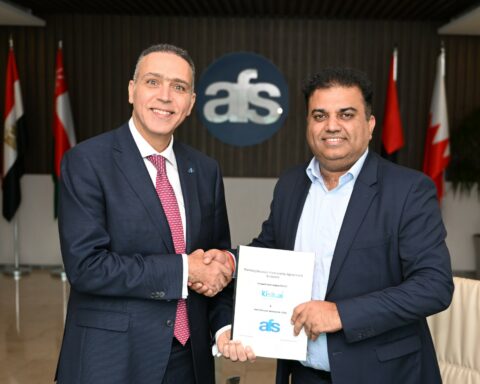How do you leverage technology to identify and assess potential investors, and what digital tools or platforms do you use for this purpose?
Pod has internal and proprietary tools to identify the potential of investors based on the information they voluntarily provide regarding their investment thesis, intent, limitations, etc. Equity and private investments in India is a regulated market and it is critical that any individual engaging in any investment activity is fully aware of the risk that it entails. Towards that end, we ask questions to potential investors to ascertain their maturity and awareness about the risks that they take when they engage in private investments.
For the purpose of KYC verification, we use India Stack solution including DigiLocker-based eAadhaar verification and digital KYC to ascertain the identity of the potential investors.
Data security and privacy are critical in fundraising. Can you explain your approach to maintaining the security and confidentiality of donor and investor information, especially in light of the changing data protection regulations in India?
As a company and technology platform, we have very stringent data security protocols. Private investment itself is a regulated space, where both the startups and investors need to make declarations about the transactions respectively to different authorities, for which they need to share information with each other. These details are shared between the concerned party directly with very limited exposure to anyone working within Pod. There is no manual handling of any identifiable information, especially regarding investments made, except where it is required to be done for compliance and regulatory filing. Only individuals with clearance for such purposes handle identifiable data with the consent of the parties involved.
Otherwise, we do not publish or share any identifiable investment or investor information directly anywhere or with a third party.
As far as the Digital Personal Data Protection Act, 2023 (“DPDP Act”), we believe that we are already compliant with all the relevant proposed conditions within it.
In the era of remote work and digital collaboration, how has your firm adapted to streamline and enhance the fundraising process using technology? Are there specific tools or software platforms you rely on?
The core aim of Pod is to standardize and add transparency to the startup fundraising and investment process in India. We’ve identified that there is a gap in the availability of capital to entrepreneurs in a few urban centres considered as ‘startup hubs’ and in the rest of the country. Similarly, the availability of startup investment as an asset class is not equally prevalent across the country.
By facilitating the process online, standardizing the process, and bringing more transparency, we aim to bridge this gap and make the physical location of the startup and investor immaterial to their capability to engage with each other.
Pod itself is the technology solution to facilitate these interactions and engagement between startups and investors. Our tools are in-house and proprietary. For the purpose of verification, transactions, and filings as mentioned before we use India Stack solutions – eAadhaar, DigiLocker, etc along with prominent payment gateway and escrow solutions.
Our whole process from end to end is completely digital.
Can you share examples of successful AI or machine learning applications in your fundraising strategies? How do you utilize these technologies to predict investor behaviour?
Pod is a technology solution to facilitate engagement and transactions between startups and investors. We neither promote any specific startup or investment opportunity nor do we advise investors on their investment decisions. We are also not engaged in any kind of marketing or fundraising strategy solution for the startups. We do not predict or aim to predict investor behaviour and share any such information with the startups. Any feedback about the investor interest in any investment opportunity is organically provided by the investors to the startup based on the startup’s own initiative and pitch that they do to reach out to such investors on the platform.
The use-cases of AI that we are currently pursuing at Pod are twofold – first to improve our due diligence capability to pre-qualify any deal on our platform in order to ensure the quality of investment opportunity available to registered investors and integrity of the platform; second to provide a tool for entrepreneurs to better build their pitches and presentation.
There are ample opportunities to bring AI/ML in Pod with the context of producing better industry information and insight to keep both investors and entrepreneurs abreast with changing trends.
India’s digital payment ecosystem is rapidly evolving. How do you integrate digital payment solutions into your fundraising operations?
India’s growing digital payment ecosystem is in fact one of the enablers and confidence builders for us to embark on the journey of Pod. Consumer confidence and adoption of online transactions gave us a sense of the trust that India now puts in digital processes and how robust the systems are.
In our case, transactions are generally what would be considered a high denomination compared to standard online retail spend. We leverage the largest payment gateway operators and digital escrow providers in India for the investment transaction that takes place. Pod facilitates escrow for the startup through our partners, where the investors park their investments which are ultimately disbursed to the capital account of the investee company after the compliance processes. Between the payment gateway and escrow account, we have robust tracking of each and every transaction that happens; and investor money is completely secure through the whole transaction.
What are the future plans of your organization and how do you see trends changing in this industry?
Pod aims to be the single source of trust for all startup fundraising and investment activities at least in India. We are rapidly growing the suite of tools and facilities available to both startups and investors on our platform that should enable better transparency and engagement to both sides.
We do see more standardization and digitalization of the startup ecosystem in India with increasing investor education and also the growth of startups in smaller cities in India. We expect rapid growth in both the number of investable ventures building localized and hyper-localized solutions in tier II/III cities and the number of angel investors, micro-funds, etc in the near future. In the past year, India crossed 100,000 DPIIT registered startups, from here on we expect this number to double every 3 years.
At that scale, a need for standardization in startup investments as an asset class will become imminent as a large number of individuals would want to explore the opportunity.
Responses By: Mr Vittal Ramakrishna, Founder and CEO, Pod World






